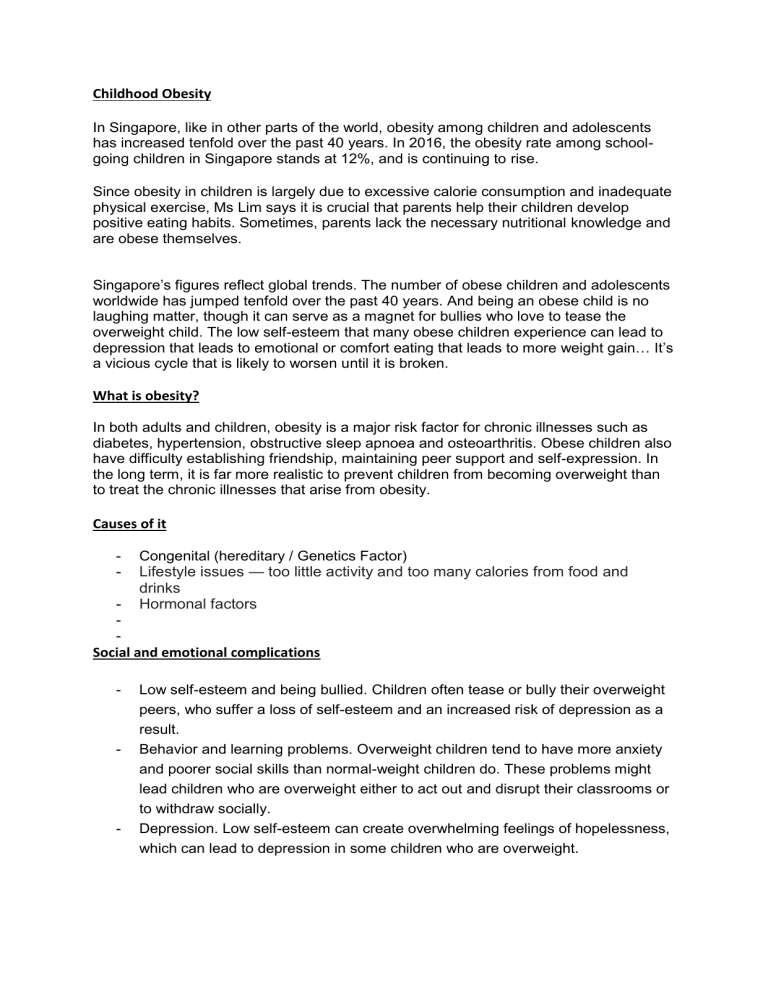
Childhood Obesity In Singapore, like in other parts of the world, obesity among children and adolescents has increased tenfold over the past 40 years. In 2016, the obesity rate among schoolgoing children in Singapore stands at 12%, and is continuing to rise. Since obesity in children is largely due to excessive calorie consumption and inadequate physical exercise, Ms Lim says it is crucial that parents help their children develop positive eating habits. Sometimes, parents lack the necessary nutritional knowledge and are obese themselves. Singapore’s figures reflect global trends. The number of obese children and adolescents worldwide has jumped tenfold over the past 40 years. And being an obese child is no laughing matter, though it can serve as a magnet for bullies who love to tease the overweight child. The low self-esteem that many obese children experience can lead to depression that leads to emotional or comfort eating that leads to more weight gain… It’s a vicious cycle that is likely to worsen until it is broken. What is obesity? In both adults and children, obesity is a major risk factor for chronic illnesses such as diabetes, hypertension, obstructive sleep apnoea and osteoarthritis. Obese children also have difficulty establishing friendship, maintaining peer support and self-expression. In the long term, it is far more realistic to prevent children from becoming overweight than to treat the chronic illnesses that arise from obesity. Causes of it - Congenital (hereditary / Genetics Factor) Lifestyle issues — too little activity and too many calories from food and drinks Hormonal factors Social and emotional complications - - - Low self-esteem and being bullied. Children often tease or bully their overweight peers, who suffer a loss of self-esteem and an increased risk of depression as a result. Behavior and learning problems. Overweight children tend to have more anxiety and poorer social skills than normal-weight children do. These problems might lead children who are overweight either to act out and disrupt their classrooms or to withdraw socially. Depression. Low self-esteem can create overwhelming feelings of hopelessness, which can lead to depression in some children who are overweight. What needs to be done for them? Obesity management programmes focus on decreasing caloric (food) intake and increasing energy expenditure through exercise. Behavioural modification of the child and his family may enhance the effectiveness of these programmes. Interviews with obese children and their families reveal that regular family activities often include food or eating but rarely involve physical activities. Hence, it is hardly surprising that obese children often have obese siblings, parents or grandparents as everyone in the family has a similar diet (excessive calories and high in fats) and a similar lifestyle (sedentary). Interventions to reduce obesity in children should also be directed at their families and caregivers. Today, domestic helpers and grandparents often take the place of mothers as the main caregivers. A holistic approach to obesity management should also include education and empowerment programmes for this new generation of caregivers.


